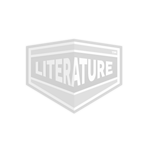The Buckwheat
"The Buckwheat" is a fable-like short story by Hans Christian Andersen about a plant of buckwheat standing tall and arrogant, not heeding the warnings of the other plants. When a storm hits, the buckwheat is the one destroyed, being snapped in two by the wind. This short parable-style story touches themes of pride, humility, and the dangers of not heeding advice. Note: It should be highlighted that "The Buckwheat" is a story, not a book. It is a part of the collected fairy tales and stories of Hans Christian Andersen.
Very often, after a violent thunder-storm, a field of buckwheat appears blackened and singed, as if a flame of fire had passed over it. The country people say that this appearance is caused by lightning; but I will tell you what the sparrow says, and the sparrow heard it from an old willow-tree which grew near a field of buckwheat, and is there still. It is a large venerable tree, though a little crippled by age. The trunk has been split, and out of the crevice grass and brambles grow. The tree bends for-ward slightly, and the branches hang quite down to the ground just like green hair. Corn grows in the surrounding fields, not only rye and barley, but oats,-pretty oats that, when ripe, look like a number of little golden canary-birds sitting on a bough. The corn has a smiling look and the heaviest and richest ears bend their heads low as if in pious humility. Once there was also a field of buckwheat, and this field was exactly opposite to old willow-tree. The buckwheat did not bend like the other grain, but erected its head proudly and stiffly on the stem. "I am as valuable as any other corn," said he, "and I am much handsomer; my flowers are as beautiful as the bloom of the apple blossom, and it is a pleasure to look at us. Do you know of anything prettier than we are, you old willow-tree?" And the willow-tree nodded his head, as if he would say, "Indeed I do." But the buckwheat spread itself out with pride, and said, "Stupid tree; he is so old that grass grows out of his body." There arose a very terrible storm. All the field-flowers folded their leaves together, or bowed their little heads, while the storm passed over them, but the buckwheat stood erect in its pride. "Bend your head as we do," said the flowers. "I have no occasion to do so," replied the buckwheat. "Bend your head as we do," cried the ears of corn; "the angel of the storm is coming; his wings spread from the sky above to the earth beneath. He will strike you down before you can cry for mercy." "But I will not bend my head," said the buckwheat. "Close your flowers and bend your leaves," said the old willow-tree. "Do not look at the lightning when the cloud bursts; even men cannot do that. In a flash of lightning heaven opens, and we can look in; but the sight will strike even human beings blind. What then must happen to us, who only grow out of the earth, and are so inferior to them, if we venture to do so?" "Inferior, indeed!" said the buckwheat. "Now I intend to have a peep into heaven." Proudly and boldly he looked up, while the lightning flashed across the sky as if the whole world were in flames. When the dreadful storm had passed, the flowers and the corn raised their drooping heads in the pure still air, refreshed by the rain, but the buckwheat lay like a weed in the field, burnt to blackness by the lightning. The branches of the old willow-tree rustled in the wind, and large water-drops fell from his green leaves as if the old willow were weeping. Then the sparrows asked why he was weeping, when all around him seemed so cheerful. "See," they said, "how the sun shines, and the clouds float in the blue sky. Do you not smell the sweet perfume from flower and bush? Wherefore do you weep, old willow-tree?" Then the willow told them of the haughty pride of the buckwheat, and of the punishment which followed in consequence. This is the story told me by the sparrows one evening when I begged them to relate some tale to me.
Translation
Translate and read this book in other languages:
Select another language:
- - Select -
- 简体中文 (Chinese - Simplified)
- 繁體中文 (Chinese - Traditional)
- Español (Spanish)
- Esperanto (Esperanto)
- 日本語 (Japanese)
- Português (Portuguese)
- Deutsch (German)
- العربية (Arabic)
- Français (French)
- Русский (Russian)
- ಕನ್ನಡ (Kannada)
- 한국어 (Korean)
- עברית (Hebrew)
- Gaeilge (Irish)
- Українська (Ukrainian)
- اردو (Urdu)
- Magyar (Hungarian)
- मानक हिन्दी (Hindi)
- Indonesia (Indonesian)
- Italiano (Italian)
- தமிழ் (Tamil)
- Türkçe (Turkish)
- తెలుగు (Telugu)
- ภาษาไทย (Thai)
- Tiếng Việt (Vietnamese)
- Čeština (Czech)
- Polski (Polish)
- Bahasa Indonesia (Indonesian)
- Românește (Romanian)
- Nederlands (Dutch)
- Ελληνικά (Greek)
- Latinum (Latin)
- Svenska (Swedish)
- Dansk (Danish)
- Suomi (Finnish)
- فارسی (Persian)
- ייִדיש (Yiddish)
- հայերեն (Armenian)
- Norsk (Norwegian)
- English (English)
Citation
Use the citation below to add this book to your bibliography:
Style:MLAChicagoAPA
"The Buckwheat Books." Literature.com. STANDS4 LLC, 2025. Web. 22 Feb. 2025. <https://www.literature.com/book/the_buckwheat_2148>.








Discuss this The Buckwheat book with the community:
Report Comment
We're doing our best to make sure our content is useful, accurate and safe.
If by any chance you spot an inappropriate comment while navigating through our website please use this form to let us know, and we'll take care of it shortly.
Attachment
You need to be logged in to favorite.
Log In